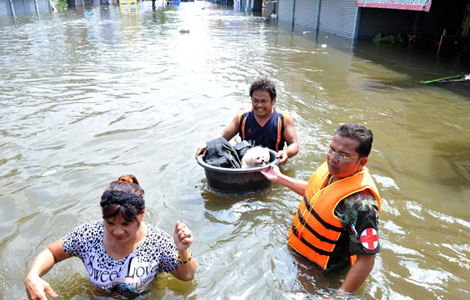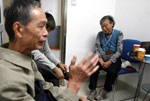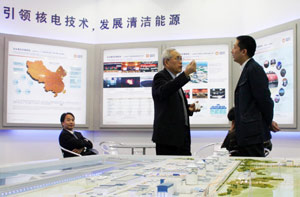Double-dip recession unlikely in China
Updated: 2011-10-24 14:14
(Xinhua)
|
|||||||||||
Stable economic policy should not ease amid uncertainties
Currently, China's economic development is faced with the complex environment at home and abroad as unstable and uncertain factors are on the rise.
The world economic condition has been undergoing complicated changes as European debt crisis spreads further while the US sovereign credit rating was downgraded. Furthermore, the international financial markets are mired in turmoil.
At home, new problems cropped up in the course of China's economic development. On the one hand, the inflation pressure continues to rise and on the other hand, small businesses are suffering from operating difficulties.
NBS spokesman Sheng Laiyun said in the face of the severe and complicated world economic situation, China has been constantly strengthening and adjusting macroeconomic control policies, following a proactive fiscal policy and prudent monetary policy. As a result, the economy has been operating soundly and moving in the right direction expected by the government's macro-control policy.
"In the next phase, China should maintain the continuity and stability of macro-control policies while giving them more foresight, relevance and flexibility," Sheng emphasized.
China has made stabilizing prices a top priority in its macro-economic controls while trying to avoid harming its economic growth by means of tightened monetary policies.
To mop up the excessive liquidity that helps fuel inflation, the central bank has raised the benchmark interest rates five times since October 2010 and increased the reserve requirements for commercial banks six times this year.
The tightening measures have adversely affected small companies as they don't have easy access to bank lending. The State Council announced a series of supportive financial and fiscal measures on Oct 12 to bail out cash-strapped small businesses and create more investment opportunities for them.
Analysts maintain that China's macro-economic policy should not ease when runaway consumer prices have not yet been fully contained, whereas, neither should the policy be further tightened when enterprises get into financing troubles.
In this dilemma, experts suggested fiscal policy should play a greater role, like reducing the taxes of small and medium-sized businesses, and at the same time some structural measures should be added to the monetary policy.
Zhang Liqun, a researcher with the Development Research Center of the State Council, expressed his opinion that given Chinese economy slowed down moderately and the consumer prices remained at a high level, so the macroeconomic control policy should keep stable and on the whole, while at the same time be prepared to guard against risks in case both domestic and international environments get worsening.
The central bank may not relax the prudent monetary policy in the short term with the inflation rate still at a high level, said Liu Ligang, director of the economic research department of ANZ Greater China.
He added that the central bank is likely to enhance financial support for capital-strapped small and medium-sized enterprises.
A report released by the Chinese Academy of Social Sciences (CASS) said the macroeconomic control should not only contain the inflation, but also keep stable and relatively fast economic growth. Top priority should be given to stability, and due consideration in macro control should be given to flexibility and prudence.
Some analysts believed that considering the fall of both economic growth and consumer prices, macroeconomic policies should not take a U turn dramatically, but the time may probably has arrived to make slight adjustments of some policies.
"Macro-policy objectives may shift slightly from fighting inflation to ensuring growth after inflation comes down as the environment for small exporters may become tougher in 2012," said Wendy Liu, a Hong Kong-based economist with the Royal Bank of Scotland (RBS).










